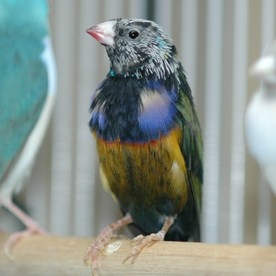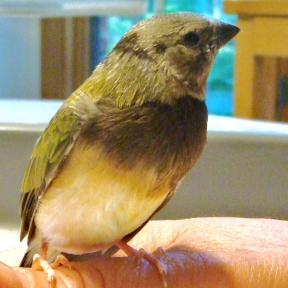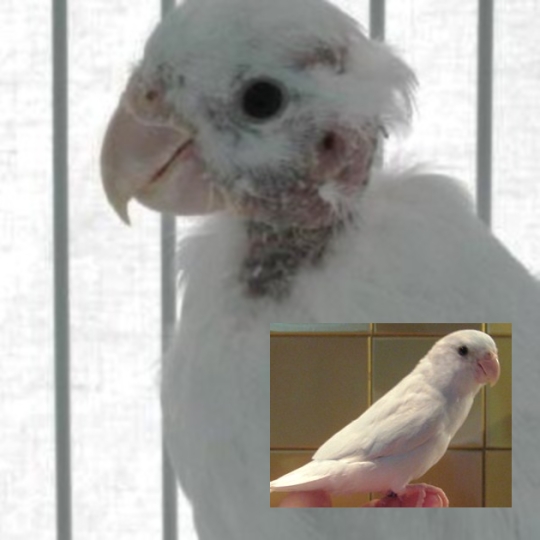PTG Problems Miscellaneous
Click on an image to see it at full size.
 |
Diagnosis: Acquired Melanism. Not a genetic mutation, therefore it cannot be passed to future generations.
Treatment: Birds exhibiting these dark feathers during the molt should be moved to good, bright lighting conditions before the next annual molt as dark environmental lighting is believed to be the major cause of this melanistic (darkened) feathering in feathers that are not normally dark brown or black in color.
|
 |
Diagnosis: Acquired Melanism. Not a genetic mutation, therefore it cannot be passed to future generations.
Treatment: This young Gouldian should be moved to good, bright lighting conditions before the juvenile molt begins, as dark environmental lighting is believed to be the major cause of this melanistic (darkened) feathering in feathers that are not normally dark brown or black in color.
|
 |
Diagnosis: American White Parrotlet was scoped for mites or skin issues but none were found. Then it was discovered that she was being picked on by another bird in her flight.
Treatment: Sugar Queen was brought in from the colony and made into a pet. Her head and neck feathers returned. She now has a nice partner that treats her like the Queen her name implies.
|